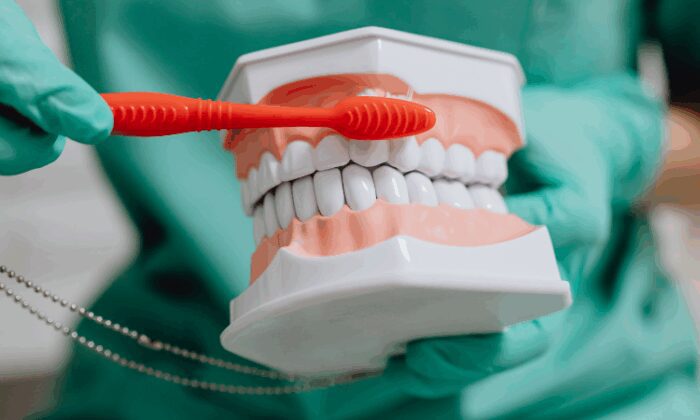Gum disease is one of the most common oral health issues, yet it is also one of the most preventable. With consistent care and healthy habits, you can keep your gums strong, reduce inflammation, and protect your smile for years to come. Understanding what contributes to gum problems and learning how to care for your mouth daily makes a significant difference.

Maintain Consistent and Thorough Oral Hygiene
Good oral hygiene is the foundation of gum disease prevention. Brushing your teeth twice a day helps remove plaque, the sticky bacterial film that leads to gingivitis and, eventually, periodontitis. Using a soft-bristled toothbrush and fluoride toothpaste allows you to clean effectively without irritating your gums. Pay extra attention to the gumline, where bacteria tend to accumulate.
Flossing daily is just as important as brushing. It reaches the spaces between teeth where your toothbrush cannot go, clearing away food particles and plaque. If flossing is uncomfortable or difficult, alternatives such as interdental brushes or water flossers offer gentle and effective options. Taking a few minutes each day to clean between your teeth can prevent early signs of gum irritation from progressing.
Visit Your Dentist Regularly
Even with excellent home care, professional dental checkups and cleanings play a crucial role in preventing gum disease. Dentists and hygienists can spot early symptoms such as inflammation, bleeding, or buildup that you might overlook. Professional cleanings remove hardened tartar, which cannot be eliminated by brushing or flossing alone.
Routine visits also provide an opportunity for personalized guidance. Your dentist may recommend specific tools, techniques, or treatments depending on your gum health. Staying proactive with these visits better ensures that any problems are addressed before they have a chance to worsen.
Pay Attention to Your Diet
The foods you eat affect more than just your overall health. They also impact your gums. A balanced diet rich in vitamins and minerals strengthens your immune system and helps your body fight off harmful bacteria. Vitamin C, found in foods like oranges, peppers, and strawberries, is especially important because it supports gum tissue and reduces inflammation.
Limiting sugary or highly acidic foods can also help. Bacteria feed on sugar, producing acids that irritate both teeth and gums. Choosing whole foods, drinking plenty of water, and snacking wisely contribute to a healthier environment inside your mouth and reduce your risk of gum problems over time.
Stop Smoking and Reduce Harmful Habits
Smoking is one of the most significant risk factors for gum disease. It weakens the immune system, lowers oxygen levels in the gum tissue, and makes it harder for your body to fight infection. Smokers often have a higher buildup of plaque and tartar and may not notice early symptoms because smoking reduces blood flow, masking the signs of inflammation.
Quitting smoking, or avoiding tobacco products altogether, often immediately improves gum health. Other habits, such as grinding teeth or aggressive brushing, can also irritate gums. Being mindful of these behaviors helps protect the delicate tissues that support your teeth.
Manage Stress and Overall Health
Stress affects your body in many ways, and your gums are no exception. High stress levels can weaken the immune system and make your body more susceptible to infections, including those that cause gum disease. Incorporating relaxation techniques such as deep breathing, exercise, or meditation can improve your well-being and support better oral health.
Managing conditions like diabetes is also essential. Uncontrolled blood sugar can worsen gum inflammation and slow healing. Working with healthcare providers to maintain overall health benefits your gums as much as the rest of your body.
Gum Disease Treatment in Silver Spring, MD
At Advanced Total Dental Care, we are dedicated to helping you preserve your oral health. If you experience red, swollen, or bleeding gums, gum disease could be the culprit. The sooner you act, the sooner you can stop the disease and restore your smile. Contact our office today to schedule a consultation and learn more about your treatment options for healthier gums.
